Analysis: While Chris and Chris race to appease the “squeezed middle”, there’s another group that doesn't come near enjoying the relative comfort of middle New Zealand, John Campbell writes.
They are the impoverished. We’ve forgotten about them in this election. But as Richie Poulton, the man behind the world-famous Dunedin study has learned, their children will never forget – or fully recover from – the hardship.
Richie
The boy and the man in the photos above is Professor Richie Poulton.
We’re using images of Richie this week for reasons that will become obvious.
And we use them with gratitude and love.
'You can't really undo what happens during childhood'
In the year beginning April 1, 1972, 1037 children born in Dunedin became part of a study that would follow their lives.
Those who’ve survived the vicissitudes of childhood and adolescence, and the decades that follow in which we do our best at being grown up, are all in their fifties now. And with great generosity, more than 90 percent of them have remained in the study.
That retention rate makes the Dunedin Multidisciplinary Health and Development Study almost globally unique. And it makes the people in it one of the most closely observed populations on Earth.
So, what have we learnt from watching their lives so closely?
Last month, I was in Dunedin shooting a story for TVNZ’s Sunday programme on Professor Richie Poulton, the study’s director since 2000. (It airs tomorrow night, if you’re reading this on Saturday – Sunday, October 1).
There’s no easy way of saying this – Richie Poulton has stage four cancer and is dying. He’s 61.
We shot with Richie over three days.
In what would be his final interview, the long-serving director called the study the professional love of his life. (Source: Sunday)
Two of them were spent in his family home, on a hill above the harbour. The wind, which still contained the bite of winter, ruffled the water. Richie’s wife Dr Sandhya Ramrakha, who’s also the study’s research manager, and their daughter Priyanka fussed about him with a tender, lovely care. Buddy-Brown, their very good dog, tried to make sense of the noisy strangers with their camera gear. Richie’s mum popped in for hugs, and tea and biscuits. Sir Graham Henry arrived to talk shit, the way men who are close to each other sometimes do when what needs to be said doesn’t need to be said at all.
It was beautiful, and sad, and special. And it was a privilege to be there.
I asked Richie whether the study has shown if there’s one thing in childhood, perhaps above all others, that steepens the climb to a healthy and happy adult life.
“Poverty,” he said.
“What was most important about that original finding,” Richie Poulton told me, “was that you can't really undo what happens during childhood. So the experience of intense or regular poverty is long-lasting.”
Anyone familiar with Richie Poulton knows his capacity to describe the science of Dunedin’s longitudinal study in terms that are richly human. But on that August afternoon he was making it political, too.
“This is where my research enters the personal fray,” he said. “This election is not going to be focused on children in poverty, because we're bored of that. We're tired of that. We're sick of that. We've tried that, haven't we? Have we tried that?”
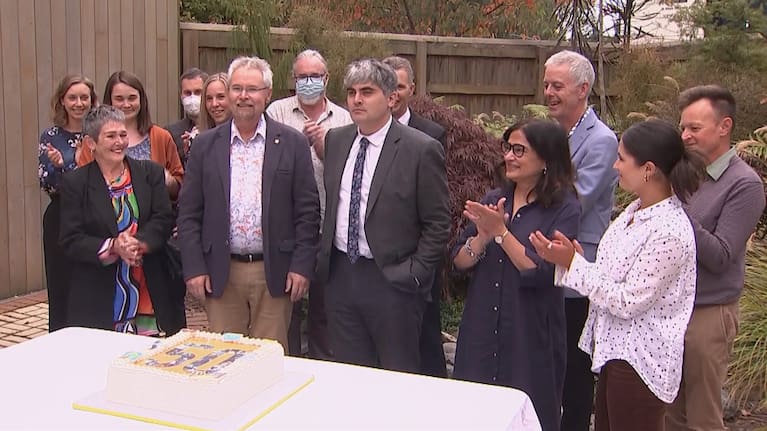
“Yet, what do we need to address really importantly, really importantly?” he asked, as if out beyond the waves now, looking back to a fading shore. And he answered his own question with a single word. “Poverty.”
I’d begun to write this piece when, on Tuesday morning, an email arrived from the National Party with the headline: ‘National says those who can work, should work’.
Of course they do.
Sometimes, I dare to hope National will transcend the paint-by-numbers, C+ in ‘Tory Politics 101’ inevitability of their own default-setting vapidity. Sometimes, I dare to hope that Labour will surprise us by understanding that what people want from them is something transformative, as opposed to the timid, shadow-life of a party that purports to be centre-left but is the “left” bit in the same way that I’m a mountaineer.
And then, as we used to say when we couldn’t work out how to end a piece of “creative writing” at school, I wake up.
I wake up and Chris Hipkins is mumbling some half-excuse for not aiming higher – or harder. And National are going after beneficiaries. Again.
Hilariously, although it’s not remotely funny, National’s announcement of a policy that includes “sanctions including benefit reductions” and “benefit suspension” came from Louise Upston, who’s also the party’s child poverty reduction spokesperson.
I mean, not that I wasn’t delighted to hear from Louise Upston. Until this week, she’d been sighted about as regularly as Elvis. But the idea of addressing child poverty by producing a policy that will inevitably reduce income in the homes of some of our poorest children is, um – look, I’m trying really hard to think of an analogy outrageous enough to be fit for purpose here, but sometimes life just defeats you.
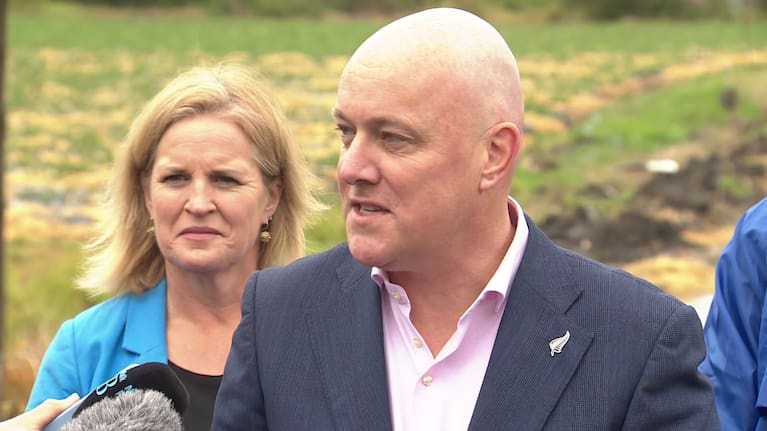
Here’s where National’s humanity shines like the spirit of Matthew 25:34-46, to use an example that will resonate with their Christian leader: “For I was hungry and you gave me something to eat, I was thirsty and you gave me something to drink”. Yeah to that. “I needed clothes and you clothed me.” You go, Matthew!
Yes, National have gone full Matthew by announcing – wait for it: “We will retain the existing rule that jobseekers with children can receive no more than a maximum 50% reduction of their benefit payment, if they are sanctioned”.
A reduction of no more than 50%?! Those kids will be fine then! Take them to Disneyland!
I went to National’s website to see what their child poverty reduction spokesperson had come up with in that role this year. And there are six media releases. Six. Maybe there’s another webpage, pumping the suckers out. But the evidence of National’s own site is that Upston has issued six archivable media releases on child poverty in 2023, and all of them are essentially policy-free criticisms of Labour’s record.
At the top of this page of non-effort there is, however, a promise central to their entire campaign: “National will deliver tax relief for the squeezed middle.”
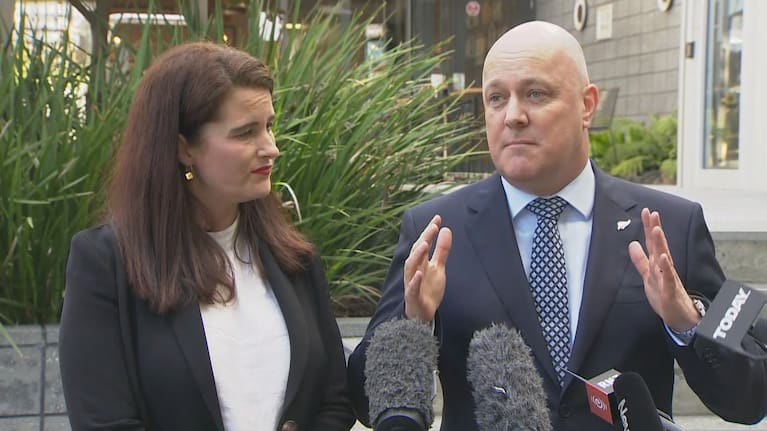
“Thank God,” I hear the children of sanctioned beneficiaries saying.
And for those children themselves, jammed, out of sight, beneath the squeezed middle? The children for whom being in the squeezed middle would be a welcome respite?
Let’s quote Richie Poulton again: “This election is not going to be focused on children in poverty, because we're bored of that. We're tired of that. We're sick of that. We've tried that, haven't we?”
Breathless with incredulity
Priorities.
There was a moment during TV1’s (excellent) Young Voters’ Debate on Monday night in which the New Zealand First candidate, Lee Donoghue, disappeared so far into frontier country someone should have called a rescue helicopter.
Lee Donoghue, by the way, is also an actor who once played a character named Hunter McKay on Shortland Street.
I digress, but it’s worth it.
Hunter, the character, has a Wikipedia page. While it’s the most autoerotic thing I’ve ever read, I totally believe that Donoghue himself didn’t write it.

Having said that, whoever did write it is pretty excitable in a cishet kinda way. McKay/Donoghue is described as a “hunk”, a “hottie”, and “receiving a lot of female attention” from “breathless girls”. (What a relief it must have been for him that the females were girls.)
The female attention Lee Donoghue received on Monday night was also "breathless", but that was probably incredulity.
On a panel of six, in which he was the only male, Donoghue mansplained the risk the five women face whenever they enter a public toilet. The women looked at him like he was exactly the thing New Zealand First fear they’ll encounter – a d**k.
"We are not on another planet, people are concerned about this," Donoghue said, from another planet. "We have people basically saying to us, 'Hey, I was assaulted in a bathroom by a biological male, this is wrong.'"
Basically.
“What we know full well,” the Greens' Chlöe Swarbrick responded, almost too appalled to say the words, “is that our trans, and non-binary, and gender minority whānau are disproportionately represented in mental ill health, addiction and suicide statistics.”
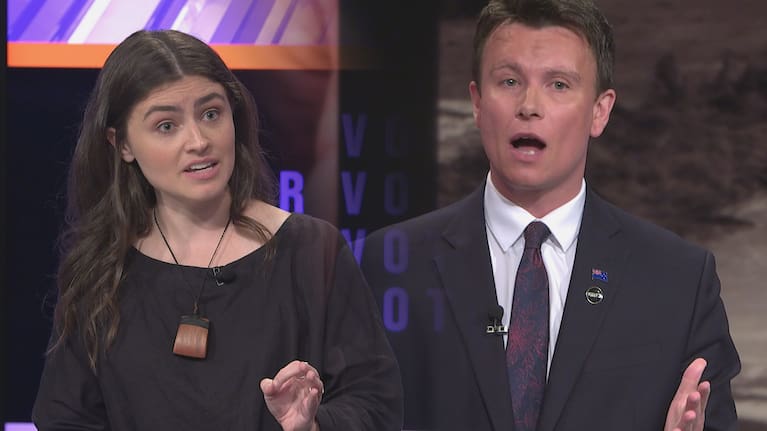
“More kids now are trans-gendering, or transitioning, than ever before,” said Donoghue the hunk, whose party reached 6% in Wednesday night’s 1News Verian Poll and may therefore hold the balance of power.
It’s “a true thing”, he said. “We want to make sure everyone’s safe.”
With Swarbrick momentarily incapacitated by having spontaneously combusted, National’s Erica Stanford stepped up to the plate: “You know what?” she said. “It’s really not a problem. And it’s something I just think is a distraction from the really big issues around the economy, and cost of living.”
Yes. And poverty, too. I suppose. But we're tired of that.
'They've let us down'
To understand the impact of experiencing “intense or regular poverty” in childhood and how it shapes the rest of our lives, you can head to the Publications page of the Dunedin Study.
Incredibly, the study has produced over 1300 publications and reports.
Many of them are listed, with links that take you to them, or to “abstracts” of them.
And what they tell us is that “low childhood SES (socioeconomic status) was associated with an increased risk of substance dependence and poor physical health in adulthood”; that children who “experienced socioeconomic disadvantage were at increased risk of a range of poor mental and physical health outcomes”; that “children who grew up in low socioeconomic status families had poorer cardiovascular health”, poorer dental health, “a threefold increase in adult periodontal disease”, “3.6-fold greater odds of smoking”, “4.8-fold greater odds (in women) of excess alcohol consumption”, and “2.7-fold greater odds of obesity”.
I’ll stop.
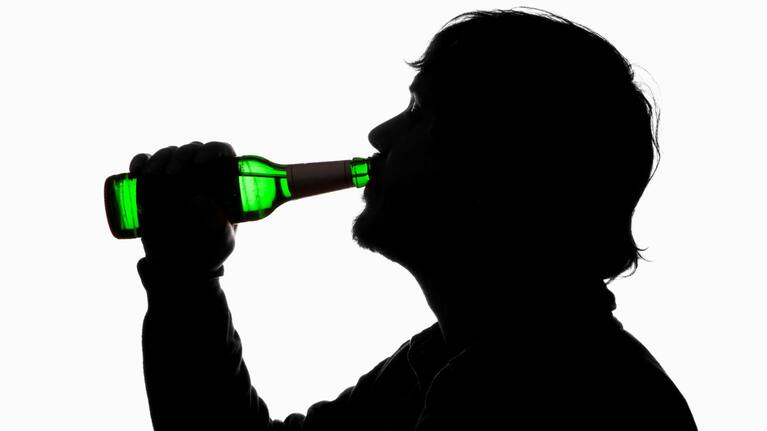
But here’s one more before I move on: “Children who experience socioeconomic disadvantage are at high risk of suffering from multiple disorders by the time they reach adulthood. This reflects their experience of a broad range of hardships.”
Hardships. From which all of life is disproportionately likely to be made hard. Or harder. And we’ve probably not mentioned those children, this election, as often as we’ve scaremongered about trans people.
“I’m in despair," said Susan St John, when I called her on Thursday afternoon.
The economist is an associate professor at the University of Auckland, and a founding member of the Child Poverty Action Group (CPAG), for whom she’s spokesperson on economics.
I realised, as I talked to her, that all the questions I was asking I had asked CPAG many times before. And that all the answers she was giving me her friend and colleague, Professor Innes Asher, had given me many times before.
And on it goes. Years and years of it.
And throughout the past six years there’s first been a Labour led government, then a Labour majority government. And they kept telling us they were going to be transformative.

And people believed them.
And as St John looked back over that time, during which CPAG and the Welfare Expert Advisory Group (WEAG) had hoped for so much more, she said to me, sadly: “They’ve let us down.”
That’s not something she says lightly. But what else can she say?
We already understood that, of course.
CPAG’s own work analysing Labour’s response to the WEAG has informed us, repeatedly, that the government is yet to fully implement a single key WEAG recommendation nearly three years on.
“The government’s vision – for a welfare system where people have an 'adequate income and standard of living' – is not being realised,” CPAG wrote, in 2021.
But there was a pandemic, and the global impact of Russia’s invasion of Ukraine, and China’s economy stalled, and in April of last year, main benefit rates were increased by between $20 and $42 per adult, per week, which was welcome and significant.
Even so, as CPAG said in June, in work co-authored by St John: “Children whose families receive a benefit as their main source of income (around 200,000 children), are four times more likely than other children to live in poverty (material hardship).”
And those 200,000 children live in homes where their parents aren’t eligible for the In-Work Tax Credit.

“In Work”. Think of those words, then think back to National’s announcement on Tuesday of sanctions for people, including the parents of our poorest children, who they’ve determined aren’t trying hard enough to get work.
They all “adhere to that ideology about work,” Susan St John told me. But “their children can’t work". And it’s the children these policies can hurt the most.
It may be now, as their second term comes to an end, that the single greatest disappointment for people who’d hoped for more from Labour, is that they consistently ignored recommendations, and then pleas, to extend the In-Work Tax Credit to all low-income children irrespective of their parent’s income source, or to increase the first child Family Tax Credit in its place. As I wrote here, the latter reaches all lower-income children, the former reaches only the children of parents who work.
Neither happened.
And for Susan St John, the idea that Labour “adheres to that ideology”, which sees our lowest income children on two tiers – those with working parents receiving a little extra, those with beneficiary parents going without – means (she fears) that Labour has essentially “paved the way for National and ACT to come in and take welfare reform to the nth degree”.
And National and ACT, to varying degrees, appear to be planning their versions of exactly that. Including more sanctions on already desperately low-income households with children.
'S**t'
“You must realise,” Richie Poulton told me, during those special days in Dunedin, “that I get a kick out of helping people, especially those that are really, that life conspired against them. Through no fault of their own. They end up in the shit, fighting the shit, forever dealing with shit. And everything they try, it gets worse.”
The key phrase here, perhaps, is “through no fault of their own”.
These are children we’re talking about.
The “shit” they get into has become our moral panic this election.
The second Chris V Chris TV debate, this one on TV3 on Wednesday night, began on crime. Not, often, on the causes of it. Not, often, on how we might address the damage that leads to it, but on how we might get tougher on gangs, ram-raiders, hypothetical shoplifters… nearly all of whom will have come from childhoods of disadvantage.

And not quite 36 hours before that discussion, Chris Luxon’s party was announcing the sanctions policy that will, inevitably, lead to greater hardship in the homes of some children.
Circles.
In December 2016, Richie Poulton and the Dunedin Study put out a media release headlined: CHILDHOOD DISADVANTAGE STRONGLY PREDICTS COSTLY ADULT LIFE-COURSE OUTCOMES. (The caps were theirs, but they feel appropriate.)
The study has been responsible for so many pieces of work – so many other studies. But this one feels so important, now.
The findings from the Dunedin study’s data had been published in Nature Human Behaviour.
Read this. Please.
“We integrated multiple nationwide administrative databases and electronic medical records with the four-decade-long Dunedin birth cohort study to test child-to-adult prediction in a different way, using a population-segmentation approach. A segment comprising 22% of the cohort accounted for 36% of the cohort’s injury insurance claims; 40% of excess obese kilograms; 54% of cigarettes smoked; 57% of hospital nights; 66% of welfare benefits; 77% of fatherless child-rearing; 78% of prescription fills; and 81% of criminal convictions.”
Twenty-two per cent of the cohort – 81% of criminal convictions.
And if experiencing “intense or regular poverty” in childhood increases likelihood of criminality later in life, we may actually have achieved the remarkable perversity of having economic policies that create the disadvantage we then spend election campaigns arguing over how best to punish the consequences of.
“Poverty,” Richie Poulton said.
“I’m in despair,” St John said.
We may now be heading from a period in which a government (that promised better) didn’t do as much as CPAG, WEAG, AAAP, the Salvation Army – you name it – begged them to do. And into a period in which the government determines the best way to respond to beneficiaries who won’t play by the rules they prescribe is to punish them.
And their children.
There’s no getting out of that. If we punish the parents, we punish their children.
“How well are we responding to poverty?” I asked Poulton. “Pretty bloody poorly,” he replied.
And what will come of that in the years ahead?
What does our own remarkable science tell us that will us lead to?
Let’s give the last word to Professor Poulton, because he deserves it.
“Shit.”
Poulton's final interview will air on the Sunday programme at 7.30pm this evening on TVNZ1 and on TVNZ+.



















SHARE ME